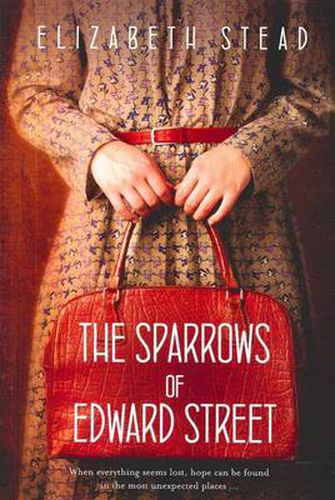Readings Newsletter
Become a Readings Member to make your shopping experience even easier.
Sign in or sign up for free!
You’re not far away from qualifying for FREE standard shipping within Australia
You’ve qualified for FREE standard shipping within Australia
The cart is loading…






IT’S 1948 AND HANORA SPARROW and her teenage daughters, Aria and Rosy, have fallen on tough times.
With little more than the suitcases they carry and a few pounds between them, they must move to a housing commission camp on the outskirts of Sydney
While the prospect of life in a ramshackle tin shed is grim, these women soon learn that they are not alone. As they befriend other camp residents such as Mr Sparkle, who’s had to leave his family behind to look for work in the city, Mr Gardiner, the war hero who never recovered, and the women of the laundry circle who are the eyes and ears of the camp, the Sparrow women discover that resilience and good humour might just be their salvation.
In The Sparrows of Edward Street, acclaimed author Elizabeth Stead uses her clear eye and sharp wit to recreate a little known corner of Australian post-war history.
Praise for Elizabeth Stead
‘Stead does more than assemble a cast of eccentric characters.
While she has a particular flair for the quick sketch of the larger-than life-character … there is a hard-edge intelligence behind the sly humour and parodying wit.’ Weekend Australian
‘An enchanting story … A gem.’ Herald Sun
$9.00 standard shipping within Australia
FREE standard shipping within Australia for orders over $100.00
Express & International shipping calculated at checkout
IT’S 1948 AND HANORA SPARROW and her teenage daughters, Aria and Rosy, have fallen on tough times.
With little more than the suitcases they carry and a few pounds between them, they must move to a housing commission camp on the outskirts of Sydney
While the prospect of life in a ramshackle tin shed is grim, these women soon learn that they are not alone. As they befriend other camp residents such as Mr Sparkle, who’s had to leave his family behind to look for work in the city, Mr Gardiner, the war hero who never recovered, and the women of the laundry circle who are the eyes and ears of the camp, the Sparrow women discover that resilience and good humour might just be their salvation.
In The Sparrows of Edward Street, acclaimed author Elizabeth Stead uses her clear eye and sharp wit to recreate a little known corner of Australian post-war history.
Praise for Elizabeth Stead
‘Stead does more than assemble a cast of eccentric characters.
While she has a particular flair for the quick sketch of the larger-than life-character … there is a hard-edge intelligence behind the sly humour and parodying wit.’ Weekend Australian
‘An enchanting story … A gem.’ Herald Sun
Aria Sparrow is 17 andstruggling to help her mother,Hanora, and younger sister,Elizabeth Rose, cope with thegrim realities of living in adisused army camp that hasbecome the dreaded housingcommission settlement on thefringe of Sydney in 1948.
Row upon row of corrugated iron huts are setin the dust, with gaps between the walls andceilings that let in the searing heat and the icycold. Hanora medicates herself into a hazeand Elizabeth Rose, like the royal she’s namedafter, feels the humiliation of homelessnessand dependency. It is Aria, as our narrator,who lives up to the family name: Sparrow.These tiny birds thrive by picking through thedebris, their sharp eyes finding the next scrap;and always willing to fight for their share.
She ekes a living as a photographer’s modelin the city, paid a pitttance to ‘love’ everythingfrom sandsoap to vegetables. Her bigbreasts are what she plainly knows as her‘currencies’ and also what prevents her fromentering the more lucrative world of theflat and curveless professional model. Backin the camp, with ‘the theatre of this daylifted a grubby curtain to the drama of fadedhopes’, she can’t help but take an interest inthe lives and sufferings of other residents.Aria is torn between doing the right thingfor everyone and using her ‘currencies’ tojump ahead of the queue for a flat: who willhelp her family if she doesn’t? Covering anembarrassing chapter of New South Wales’social history, this is an interesting read forlovers of post-war fiction and the humourfound amongst the struggle to survive.
Kath Lockett is a freelance writer and reviewer.